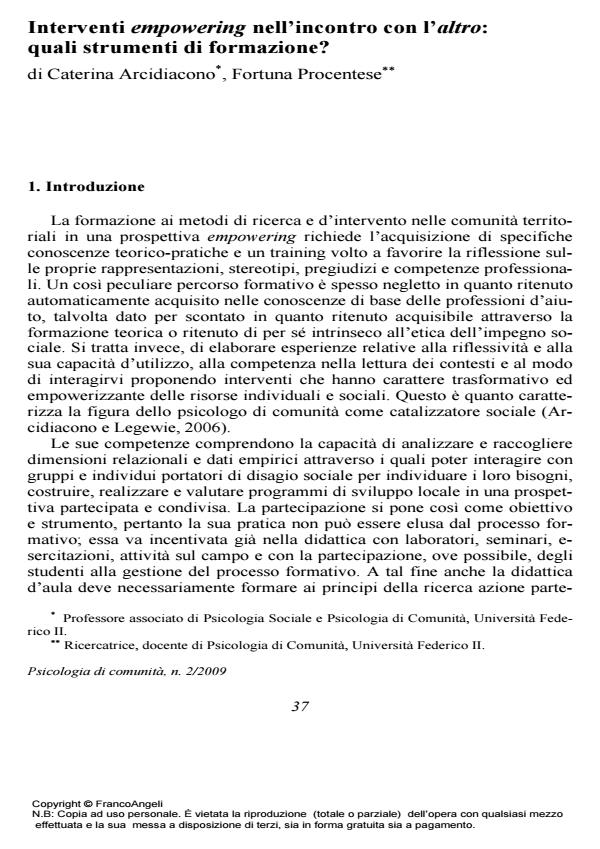Interventi empowering nell’incontro con l’altro: quali strumenti di formazione?
Journal title PSICOLOGIA DI COMUNITA’
Author/s Caterina Arcidiacono, Fortuna Procentese
Publishing Year 2010 Issue 2009/2
Language Italian Pages 11 P. 37-47 File size 501 KB
DOI 10.3280/PSC2009-002004
DOI is like a bar code for intellectual property: to have more infomation
click here
Below, you can see the article first page
If you want to buy this article in PDF format, you can do it, following the instructions to buy download credits

FrancoAngeli is member of Publishers International Linking Association, Inc (PILA), a not-for-profit association which run the CrossRef service enabling links to and from online scholarly content.
Empowering intervention to met of the other: which are training tools? - Continual social and cultural transformations make it difficult to analyze contexts of social hardship and exclusion and to intervene in them. The aim of this article is to reflect on various training possibilities in community psychology and the means with which to address "the issue of the other" in a university context. The knowledge of contexts and of their language is at first request to understand the needs and resources of the people and of the community. Based on the experience gained from courses in community psychology held at the Federico II University, the focus is on creating spaces in collaboration with students, where they can discuss their representations, prejudices and stereotypes. A knowledge of methods of intervention and the study of conflict in situated contexts are further means proposed for getting in touch with unfamiliar situations and for successfully interacting with the condition and circumstances of "the other".
Keywords: Training in community psychology, social exclusion, participatory action research, reflexivity, situated contexts.
Caterina Arcidiacono, Fortuna Procentese, Interventi empowering nell’incontro con l’altro: quali strumenti di formazione? in "PSICOLOGIA DI COMUNITA’" 2/2009, pp 37-47, DOI: 10.3280/PSC2009-002004